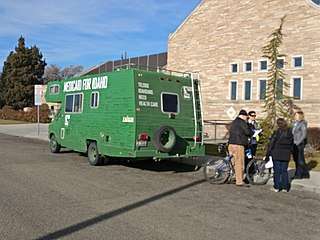Ballot measure
A ballot measure is a piece of proposed legislation to be approved or rejected by eligible voters. Ballot measures are also known as "propositions" or simply "questions".
Ballot measures differ from fewer legislation passed by representative democracies; ordinarily, an elected legislature develops and passes laws. Ballot measures, by contrast, are an example of direct democracy.
In the United States ballot measures may be established by several different processes which vary amongst the states:[1]
- Initiative, in which any citizen or organization may gather a predetermined number of signatures to qualify a measure for the ballot;
- Popular referendum, in which a predetermined number of signatures (typically lower than the number required for an initiative) qualifies a ballot measure repealing a specific act of the legislature;
- Legislative referral (a.k.a. "legislative referendum"), in which the legislature puts proposed legislation up for popular vote (either voluntarily or, in the case of a constitutional amendment as a required procedure).
- Recall election, in which voters can remove an elected official from office through a direct vote before that official's term has ended

An initiative canvassing campaign, Medicaid for Idaho, to put Medicaid expansion on the ballot; the Methodist Cathedral of the Rockies hosted the volunteers[2]
In Switzerland, same kind of ballot measures are known as votations.
See also
References
- Initiative & Referendum Institute (2013). What are ballot propositions, initiatives, and referendums? Archived 2010-07-25 at the Wayback Machine. USC.
- Young, Jeffrey (2018-03-21). "In This Red State, Progressives Are Taking Matters Into Their Own Hands Amateur activists, sick of being ignored by the GOP, are fighting to cover the uninsured". Huffington Post. Retrieved 2018-04-15.
This article is issued from Wikipedia. The text is licensed under Creative Commons - Attribution - Sharealike. Additional terms may apply for the media files.